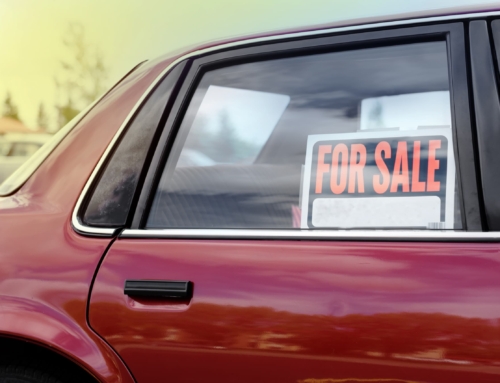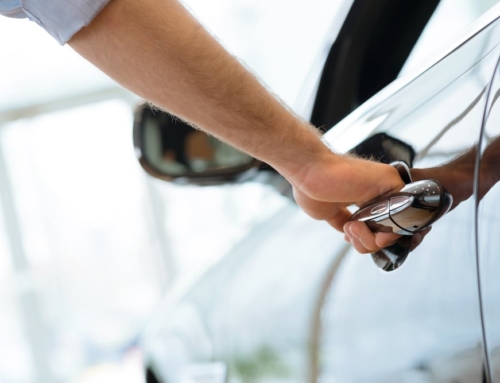Imagine this: You’ve just gotten into an automobile accident. Along with dealing with any physical injuries and worrying about the damage to your car, you may also be concerned that your auto insurance rates will go up.
“Car insurance is one of those things where you’re not assuming you’re going to use it when you buy it,” says Des Toups, managing editor of Insurance.com. “You think, ‘OK, I have to do this, so let me pay the least amount possible.’”
The problem with this, Toups says, is that there is a difference between the legally required amount of insurance and the amount of insurance that keeps you protected.
Whether this is your first time shopping for auto insurance or you’re re-evaluating your current policy, here are seven questions to ask an automobile insurance agent:
1. By law, what coverage am I required to have?
This question is a great starting point. The answer, which can vary from state to state, will let you know what you need to buy and will give you a baseline policy to which you can compare additional coverage options.
2. What extra coverage should I have?
In many instances, the state minimum will not be enough to cover every cost associated with an accident. Learning what additional coverage will do can help save you future problems.
A personal umbrella insurance policy, for example, could be useful if you are liable for an accident but the damages are more than what your regular auto policy covers. The umbrella coverage would then kick in and pay for the rest of the damages.
Equally as important is being able to spot unnecessary add-ons. “I really like the idea of having in mind what you need for your situation,” says Toups.
If you have two vehicles, for example, you may not need or be interested in insurance that would pay for a rental while one vehicle is being repaired.
3. Am I eligible for any discounts?
Discounts can make a significant dent in your premium—up to 50 percent in some cases—making them absolutely worth investigating.
Qualifying for a discount can be as simple as being a non-smoker or having a vehicle with airbags. You may also be eligible for a safe driver discount for three to five consecutive years of safe driving, though these discounts tend to be modest. Some discounts can be harder to find—but worth the search. For example, you may receive a discount just for getting an online quote with the company you choose. Asking up front will help you know exactly for what discounts you are eligible.
4. What will my deductible and my premium be?
The answer may vary widely between insurers. Many factors can affect the price of your insurance policy, so you will want to know ahead of time what you can afford.
“Raising your deductible to $1,000 is silly if you don’t have $1,000 in the bank,” says Toups. It may sound obvious, but a higher deductible (the amount you pay before insurance coverage kicks in) can be attractive because it often means a lower premium (the amount you pay each year for coverage). A lower deductible might seem to be more manageable for you, but often this will translate to a higher yearly premium. Above all, you shouldn’t commit to something you won’t be able to afford.
Toups advises to keep in mind what you’re willing to sacrifice in order to save money. Paying for just the minimum coverage can be risky, but perhaps it’s worth the risk to you because of the low cost. Knowing what coverage you want can help keep you from making an irrational decision, such as getting a deductible you can’t afford.
5. What is the actual cash value (ACV) of my vehicle in its present condition?
The ACV refers to the value of your vehicle before it was damaged. Knowing this will help determine how much you are awarded in the case of an accident, though it can vary greatly depending on the insurance company’s appraisal standards. Appraisal standards are typically based on the auto book value (based on Kelley Blue Book, Black Book, or the National Automobile Dealers Association), the fair market value, and state-specific requirements.
Don’t avoid negotiating this value, as you can often end up with a better, firmer number. The insurer may use a standard appraisal website once the accident has occurred, but having quotes, in writing, from a trade-in dealer can help you secure the actual value of your vehicle.
6. How will life changes, such as adding a teenage driver, affect my policy rates?
If you have a son or daughter who will be driving in a few years, you’ll want to consider how different insurers react to this information. Adding a teenage driver to your insurance policy can be a costly endeavor.
The payments for young drivers can vary widely between insurers, so Toups suggests shopping around just to see how big an impact adding your teenage driver would have on your premium. In most cases your payments will increase, but some insurers offer discounts connected to your child’s grades.
7. Is it possible to bundle my auto insurance with my life or home insurance policies?
Here is an opportunity to save additional money. If you are happy with your homeowner’s insurance, for example, it would be worth looking into using the same insurer for your auto.
Companies are typically inclined to lower their rates for bundles as this tactic can be mutually beneficial. You can get a lower rate than you would if you spread your policies between companies, and the company gets to handle even more of your business.
All of these questions might sound like a lot of legwork, but “if you’re going to find and compare car insurance prices, the web is the single easiest and fastest way to do this,” Toups says.
Just remember to take the time to find out what you need, how much it should cost, and how much you can spend so that you don’t waste time or money.
“If you talk to an agent without doing any research,” Toups explains, “you’re limiting yourself, and you’re also not helping the agent.”
[amazon_link asins=’1524763438,B002D47XOM,B011VIUGZI’ template=’ProductCarousel’ store=’thinkglink-20′ marketplace=’US’ link_id=’814e3cc7-1cb0-11e8-9fbd-8d83d0e27c52′]






